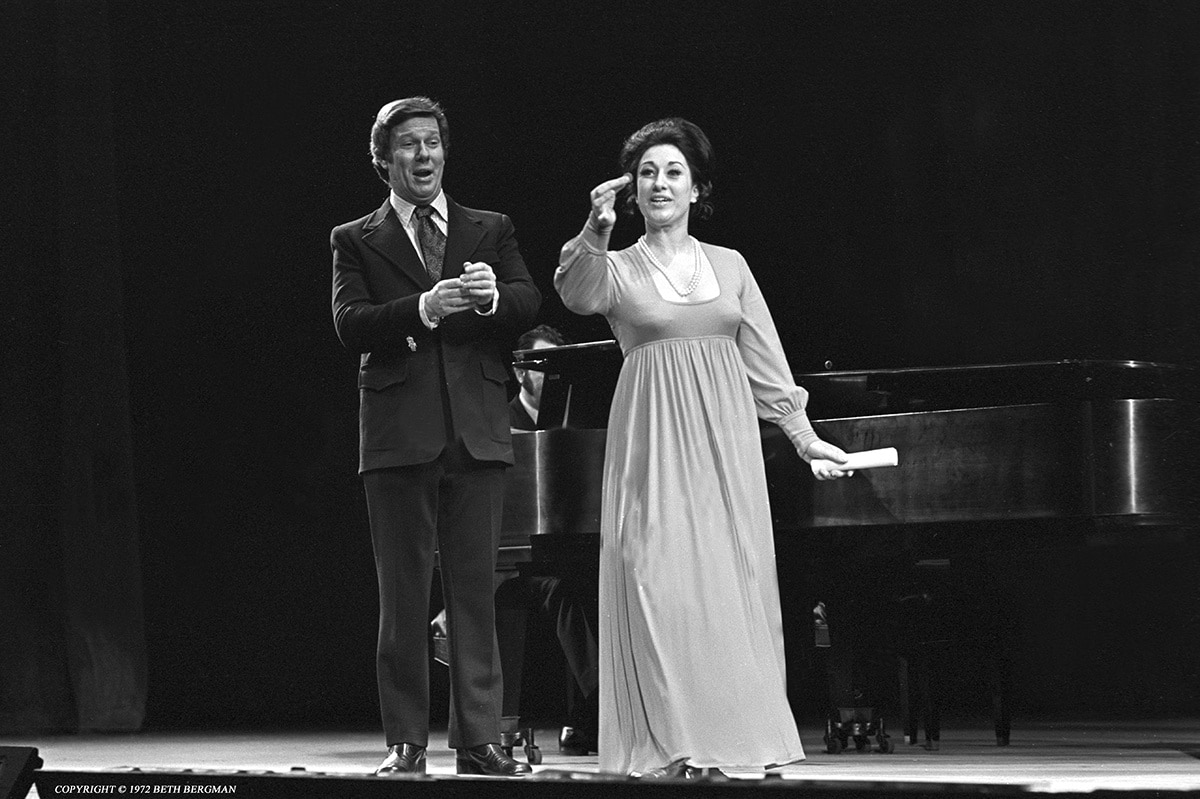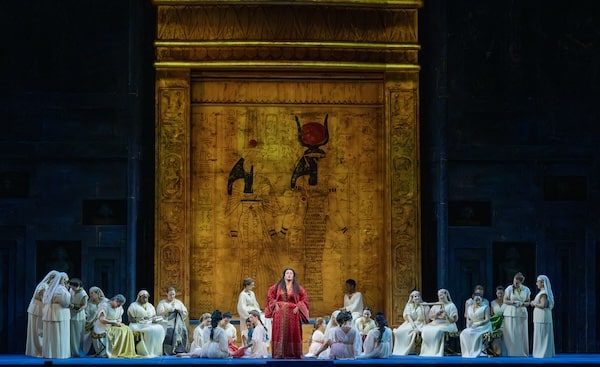A maestro asks: Does a woman concertmaster change my orchestra?
mainAmong volumes of responses to our groundbreaking survey of woman concertmasters comes one from a well-known music director who wonders whether there is an appreciable difference when his orchestra is led by a woman, or a man. This particular maestro has a woman concertmaster at his orchestra, and his question is offered in the soirit of honest inquiry.
So what do our readers think? Especially the concertmasters among you.
And the conductors, of course.






OK, despite the possible madness of doing so, I cannot resist putting my head over the parapet on this one. Generalising about gender is very dangerous, though, because I firmly believe that good musicians are good musicians and we should not let gender issues cloud this understanding. My suspicion is that there is still gender bias in concertmastering as well as in conducting and possibly composing – and I think that in every case this is not only morally wrong but simply foolish, for who knows what beauty of talent is passed-over.
Concerning the concertmaster question, I think there is often some difference between male and female approaches to music. I can think of exceptions but on balance my experience suggests that there is some truth in what we might think is the predictable stereotype – that a typical male approach is more testosterone driven and egotistical whilst a female approach tends to be more sensitive, subtle and sensual in the approach to music itself and more emotionally intelligent and team-orientated in terms of leadership approach. Regardless of genders, I think a good balance of these qualities across a section is desirable. As to who sits at the very front, I think it must always come down to the individual, not the gender – but I must admit that the ones I have found the best are female.
It may do if you’re married to them 🙂
That Nelsons, after completing only his first season in Boston, would be asked by Berlin and would accept if asked, has become a favorite motif of this blog-keeper. Apart from keeping the pot on a slow boil—something he enjoys doing and does well, I wonder why he keep alluding to this possibility. It reflects poorly on Nelsons ( at least his potential loyalty) and on the Boston Symphony (at least its clout in an open market).
Why this Americanism? The English term is ‘leader’. You don’t go into German or French for example when talking of their countries’ orchestral leaders. UK English should surely be the language of the site.
Ray, you are correct, though the term Concertmaster is in increasing usage in the UK. Both the Philharmonia and Royal Opera House Orchestras for example refer to their leaders as Concertmasters.
Concertmaster is a much better and descriptive term. You know right away what position it refers to. A leader can be anything, and in the context of music it sounds like you’re talking about a band, not an orchestra.
Why is concertmaster a better descriptive term? It could just as easily apply some jumped up personage who runs the concert arrangements. The leader does exactly what it says on the tin. Of course a leader can lead all sorts of other things to; The Leader of the Opposition for example, but for heaven’s sake we’re talking here in terms of its musical meaning. I’ve never heard anyone use the word for the person who conducts a band , he’s the bandleader, when did you last hear someone call Jo Loss the leader? And imagine you’re in the concert hall listening to your favourite orchestra one evening when the leader is indisposed and another violinist stands in. Do you turn to your neighbour before the conductor comes on and say who’s the concertmaster tonight then? Of course you dont, it would be laughable. The OED gives 1811 as the first usage of the term as someone leading an orchestra. The word has caused absolutely no ambiguity in the intervening 104 years, nor does it today. To top it all off N.L. is on a rant here about women in the role, so why use such a sexist term?!
A few years ago at the Proms Daniel Barenboim gave a complete Ring cycle with the Deutsche Oper. At the end of this mammoth undertaking he made short speech in tribute to the concertmaster, who was retiring. He said how glad he was to pay tribute to his good friend and colleague – though he said he had to be careful to refer to him as “Konzertmeister” rather than “leader” – as he said that “leader” translated into German had a rather unfortunate history associated with it! Brought the house down.
The majority of violinists in orchestras are now women. It is only natural that their sections be led by women. Blind auditions have pretty much confirmed that gender does not create perceptible differences in the performance of classical music. The performance of aging orchestral literature has become so routined and codified, that it is essentially a form of conveyor-belt music-making. This reduces individuality in general, which makes it even more unlikely that gender differences could be created.
On the other hand, women concert masters create important symbolic changes that mitigate the anachronistic ethos of patriarchy in orchestras – authoritarianism, romantic cultural nationalism, ethnocentricity, sexism, and racism. One thinks not only of the overt racial and gender chauvinism of orchestras like the Vienna Philharmonic, but also of statements such as those by the recently deceased Rolf Smedvig (RIP) who told a group of women brass players that they sound girly and questioned whether women had the strength and endurance to play large orchestral works or create the “animal sounds” necessary for Stravinsky’s “Rite of Spring.” Smedvig was first trumpet in the Boston Symphony, an orchestra that only hired the first woman brass player in its history about five years ago.
Symphony orchestras are ensembles from the century before last. As they continue to die, we will return to more authentic forms of music-making that might eventually allow for more complete and honest explorations of how gender affects music. Many composers already reject the patriarchal nature of orchestras as a crude anachronism of the past, and patrons are increasingly rejecting orchestras as instruments by and for the privileged classes. Gender integration will not even be a question, because the orchestra will evolve out of existence, or transform unrecognizably.
It is certain that we are witnessing an historical movement that will continue. Women musicians are assuming positions of leadership, and are creating a wide-reaching cultural metamorphosis. By returning the feminine to humanity, they are giving society a new identity, and a deeper understanding of human consciousness that is profoundly transforming the world of music. From this larger perspective, the increasing number of women concertmasters is a stepping stone to a better future where orchestras will only be a part of history.
The patriarchy of music is part of the music that is made. Most of the European music played was composed during imperial times. Men are generally larger and physically stronger and therefore have more powerful tone quality, which is important in a concertmaster. A woman should therefore be larger and stronger than average to lead. I have discerned a distinct change in the tone quality of string sections in proportion to the number of women. When the majority of the players are men, the women will play stronger to blend in. This is lost when the majority are women. Testosterone does create drive and competitive urges, greater strength, and estrogen does not. Hormones are basic to who we are. Women may play as well, or perhaps better technically, but that doesn’t mean they have the desired qualities.
The same can be said for hiring a man as concertmaster who does not have the strength of tone to effectively lead the orchestra like men such as Norman Carol or Joseph Silverstein, or Glenn Dicterow. There are always exceptional people, but sometimes they should remain exceptions.
It is certainly obvious among harpists in side-by-side comparisons that the male players are more capable of powerful tone quality. Stop pretending for the sake of politics.